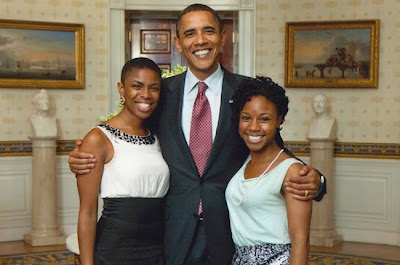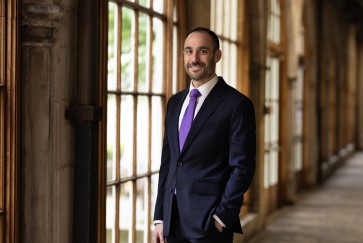The Women’s Center has appointed Je-Shawna Wholley, a nationally recognized storyteller and advocate known for empowering LGBTQ Black youth, as Northwestern University’s second annual Feminist-in-Residence fellow.
While an undergraduate at Spelman College, Wholley served as president of the LGBT student union Afrekete, where she helped spearhead the first LGBTQ Pride Week in collaboration with Atlanta’s neighboring universities. Wholley was also instrumental in the research and planning of the historical Audre Lorde HBCU Summit in 2011. The first project of its kind at a historically black college or university (HBCU), the summit sought to increase awareness and understanding about African American LGBTQ experiences and create climates that acknowledge, value and respect difference, especially within HBCUs, where profound silences continue to exist around gender and sexuality. That same year Wholley was recognized with a Campus Pride Voice & Action National Leadership Award.
Northwestern Now spoke with Wholley to learn about her upcoming projects and what makes advocacy successful.
What led you to this work?
What started me on this path was being nurtured as a young Black queer person. I grew up surrounded by Black queer folx and Black queer elders -- which was interesting because they didn’t necessarily name themselves as queer — but I was able to see them in relationships.
I grew up in a predominantly Black county, and I attended a predominantly Black high school and later a Historically Black College, so my commitment to the Black community and life was forged around my upbringing. I grew to have a sense of accountability to them.
Going to college showed me that this wasn’t a common experience for everyone. Being able to see that, while being in community in Atlanta, which has a rich history of civil rights activism and was a mecca of Black, queer and trans activism — I was just at the right place to find my people and to find my voice.
What draws you to event-driven advocacy?
I’ve always been geared toward cultivating containers and spaces and asking, “how do we bring people into the room?” And it is not necessarily always to have a cross-cultural meeting or a common point. Sometimes we need to bring people together to heal, hide, protect, or to be with ourselves and be with each other. Every job I’ve had has been geared around programming in some way. I think I’m beginning to learn what it means to be in legacy with culture workers who understand the importance of community engagement in art and practice when it comes to civil rights, justice and healing.
The Drag Show happened in addition to a petition and promoting National Coming Out Day. It was a way of taking up space and our way to say: This is our school. We are not going to be erased. If you are saying our siblings can’t express themselves, then we are going to create a space on campus where we can just be who we are.
What was it like to meet President Obama?
It was mind-blowing. It was through the Human Rights Campaign, which was part of our outside support system. I was invited to bring my best friend from Spelman. He came up to us and said, “These must be my Spelman Girls.” I remember being so giddy — I thought, “How did he know we are from Spelman?” Of course, he was prepared and knows how to make people feel special. There was no opportunity to sit down and talk policy reform. Although I would love that opportunity someday! It was an honor and very ceremonial.
What do you have planned for Northwestern?
I’m coming to work on a project I call the Earthseed Project, a family and community archival and history project. There are a couple of layers to the project.
The first layer is the cohort experience. For a few years I’ve been interested in doing some research around my own family history as a Black person in America with my whole family in the South. There is a lot of fragmentation around knowing my own history. Some is due to trauma, and some to systemic racism and not being able to find records and know who your roots are.
I believe we heal in community, and I thought it would be really dope to create a cohort experience of other Black and marginalized groups -- people who also want to engage in their own family archival project with the focus on remembering to heal and create new practices and worlds as we move forward. We will come together to meet and have guest speakers on creating a container and preparing oneself for that emotional work.
The intention is also to create something together. At the end of our experience the cohort will have created something to showcase what came from our process of remembering who we are, speaking to our elders, and really thinking about the future with this depth and wealth of ancestral knowledge, when it comes to justice and to healing in our community.
The other part of the project is a public workshop, essentially a cohort meeting on a larger scale for the public. I want to create an opportunity to bring in a speaker and create a space where we can get creative in how we think about the social justice issues in front of us. We will learn where can we access some ancestral wisdom and really think about the ethos of Black feminist thought, which acknowledges our lived experiences but also acknowledges the history of ourselves and the wisdom that comes from our ancestors. We will learn some practices that can loosen us up and connect us to that place and then start thinking critically about what’s possible when we are thinking about justice.
What are some of the common challenges Black students face on campuses across the country?
I think one consistency across any college environment is just looking for community. And I think Black, queer and trans students are seeking and needing institutionalized space where they can just enter that space fully as who they are. The entire space and campus environment needs to work together to do that.
Colleges are struggling to figure out how to create and build trust with Black and queer and trans students. Campuses can approach student support by letting them know, “We see you, we acknowledge your presence and the contributions that you make to this campus community, and we care about your insight on what will make this campus home for you.”


